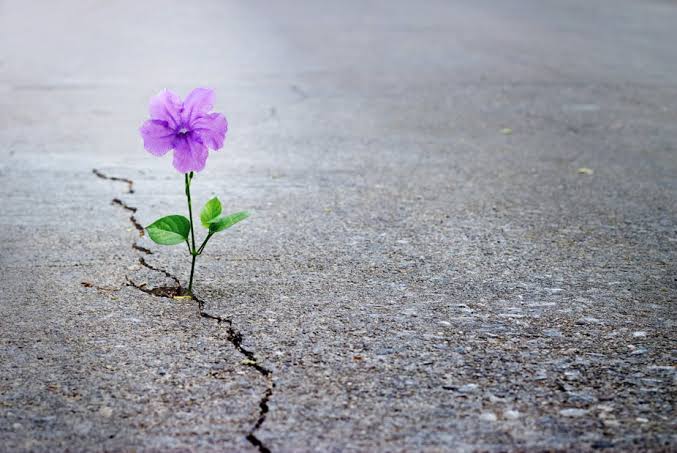Life is rarely a smooth journey. Each of us faces difficulties—whether financial struggles, broken relationships, health challenges, or the simple uncertainties of the future. In those moments, it is easy to feel defeated, to give up, or to believe that the weight of our burdens is too heavy to carry. Yet, throughout history and in everyday life, we see people who overcome impossible odds, rebuild their lives, and inspire others through their perseverance. The secret behind their strength is resilience.
Resilience is the ability to withstand adversity, recover from setbacks, and keep moving forward despite obstacles. It is not the absence of pain or failure, but the determination to rise again each time life pushes us down. This powerful trait has shaped nations, built strong communities, and given countless individuals the courage to transform challenges into opportunities.
Why Resilience Matters
Without resilience, setbacks can easily destroy us. A failed business, a broken friendship, or a season of loss can leave someone stuck in despair if they lack the strength to recover. On the other hand, resilience transforms those same challenges into stepping stones for growth.
Consider a student who repeatedly struggles with exams. A person without resilience might quit school, believing they are not smart enough. But a resilient student will analyze their weaknesses, seek help, and keep trying until they succeed. The difference is not talent—it is the refusal to give up.
In our fast-changing world, resilience is more important than ever. Technology evolves rapidly, economies fluctuate, and personal circumstances can shift in an instant. People who are resilient adapt to change and thrive, while those without resilience often remain stuck in fear and frustration.
The Root of Resilience
Where does resilience come from? Some people believe it is a natural trait—something you are born with. While personality may play a role, resilience is largely a skill that can be developed. It is built through mindset, environment, and faith.
1. Mindset
A resilient person sees failure not as the end, but as a lesson. Instead of saying, “I failed, therefore I am a failure,” they say, “I failed, but I can try again differently.” This mindset transforms problems into possibilities.
2. Environment
Supportive friends, family, and mentors strengthen resilience. Being around people who encourage instead of discourage, who believe in you when you doubt yourself, makes it easier to stand tall.
3. Faith
For many, resilience is rooted in faith—belief in God, in destiny, or in a purpose greater than themselves. Faith reminds us that storms do not last forever and that every challenge can produce strength.
Real-Life Examples of Resilience
Resilience is not just theory—it is seen in countless real-life stories.
Thomas Edison, the inventor of the light bulb, failed thousands of times before succeeding. When asked about his failures, he famously said, “I have not failed. I’ve just found 10,000 ways that won’t work.” His resilience gave the world one of its most important inventions.
Bethany Hamilton, a professional surfer, lost her arm in a shark attack at age 13. Instead of giving up, she trained harder and returned to professional surfing, inspiring millions with her courage.
In many communities around the world, families living in poverty display resilience every day. Despite lacking resources, parents continue working tirelessly, believing in a better future for their children.
These examples show that resilience is not limited to the famous; it is a power available to all of us.
Building Resilience in Daily Life
Resilience can be cultivated through simple but consistent practices:
1. Develop a Positive Outlook
Focus on what can be done instead of what has been lost. Even small victories matter.
2. Set Realistic Goals
Large challenges can feel overwhelming. Breaking them into smaller, manageable steps makes it easier to progress without losing hope.
3. Embrace Change
Change is inevitable. Instead of resisting it, resilient people adapt quickly, finding new paths when old ones are blocked.
4. Strengthen Your Support System
Relationships are crucial. Surround yourself with people who uplift you, and in turn, be a source of strength for others.
5. Take Care of Your Well-being
Physical health, rest, and emotional balance give the body and mind the strength to recover from stress.
6. Rely on Faith and Spiritual Practices
Prayer, meditation, or reading scripture often provides peace in chaos and hope in despair. Faith teaches us that setbacks are not the final word.
Resilience and Community
Resilience is not only personal—it can be collective. Communities struck by disasters often come together, rebuilding homes, schools, and lives through shared determination. Nations recovering from wars or pandemics show how resilience can be multiplied when people unite for a common purpose.
In African traditions, the spirit of ubuntu—“I am because we are”—reflects resilience at a communal level. When one member suffers, the community supports them; when one succeeds, all celebrate. Such unity strengthens resilience and allows people to rise stronger together.
Passing Resilience to the Next Generation
Perhaps one of the greatest gifts we can give children is resilience. In a world of uncertainty, teaching young people how to cope with failure, adapt to change, and remain hopeful is invaluable. Instead of shielding them from every challenge, parents and mentors should guide them through struggles, showing that setbacks are part of life and growth.
When children see adults handle challenges with grace and determination, they learn to mirror the same attitude. This generational resilience ensures that future societies remain strong and hopeful, no matter the circumstances.
Conclusion
Resilience is not about avoiding pain—it is about enduring it, learning from it, and rising above it. It is the strength that turns victims into victors, and dreamers into achievers. Each challenge we face offers an opportunity to grow stronger, wiser, and more determined.
No matter how heavy the burden, resilience reminds us that we are capable of more than we imagine. By nurturing a strong mindset, leaning on supportive communities, and drawing strength from faith, anyone can develop the resilience needed to face life’s storms.
The storms of life are real, but they do not last forever. What lasts is the spirit of resilience—the unbreakable will to rise again, to rebuild, and to hope for a brighter tomorrow.









Comments (0)